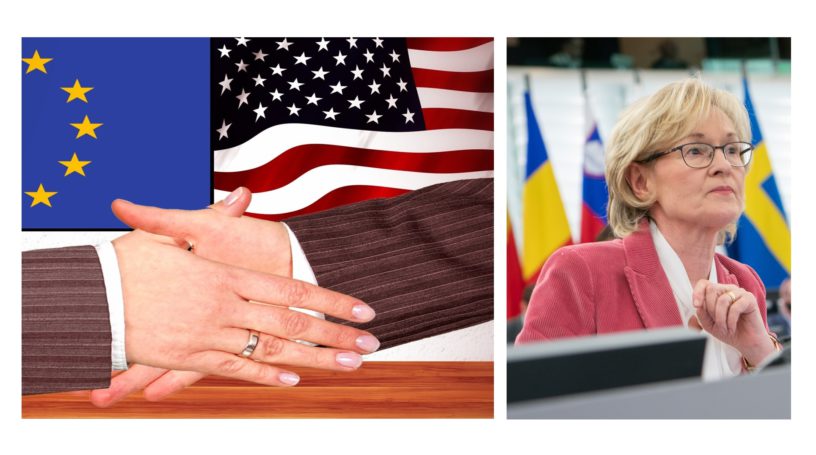By Dan Byrne for AMLi
EUROPE’S politician overseeing AML has praised the United States for laws recently enacted there that combat money laundering.
Speaking as part of an online panel this week, European Commissioner Mairead McGuinness stressed that the EU was excited about working with the new Biden administration – and emphasised the importance of a multilateral transatlantic partnership that would reinforce the fight against money laundering and other issues.
McGuinness, Commissioner for Financial Services, Financial Stability and Capital Markets Union, delivered the keynote address at a virtual seminar entitled Financial Resilience, the Future of Secondary Sanctions, and Global Response Wednesday.
She recognised the recently passed Defense Act in the United States which brought about a major revamp of the country’s AML regulations – chief among them the introduction of a national beneficial ownership registry.
Praising the law, she said that the EU “looked forward to the closer cooperation through the Financial Action Task Force,” in future.
She is due to introduce Europe’s new AML Adoption Plan in weeks. As AML Intelligence revealed earlier this month, the adoption plan is set to see AML powers move from the European Banking Authority to a new standalone agency. Her officials are also studying proposals to ban cash transactions over €10,000 in the bloc.
At Wednesday’s event, organised by the Atlantic Council, McGuinness also spoke extensively on the topic of sanctions, emphasising that stronger cooperation between the EU and US would “reinforce the transatlantic alliance, including in finance.”
The EU recently adopted a universal sanctions regime – allowing member states to come together in a multilateral effort and target those guilty of laundering, terrorism financing, corruption and other crimes.
McGuinness said that this principle of multilateralism was something that should be applied beyond the EU’s borders, especially in connection to its relationship with the United States.
“The EU is a good example of multilateralism in action,” she told the seminar. “Countries acting unilaterally and departing from multilateralism can be disruptive.”
She took aim at the world’s most prominent international institutions, saying that they were currently “weaker than they should be,” and that there needed to be more of a willingness for multilateralism to fix this.
“There is a need for us to talk to people where we have huge differences,” she said. “Sanctions are a way to show where we are prepared to take strong action at a diplomatic level. We need to make sure that what we agree is implemented effectively.”
When asked about the future of EU sanctions and the possibility of forming an organisation resembling the American Office of Foreign Assets Control (OFAC), McGuinness said the EU’s unique political structure meant there wasn’t a need for it.
“I don’t think we can replicate [OFAC]” she said. “But we do need to strengthen our work in this area. We can certainly learn from the United States on this.”
Mairead McGuinness took up her current post as Commissioner in October 2020 and previously served as First Vice President of the European Parliament from 2017.
Since taking office, she and her officials have been working on adoption plans for the European Commission’s AML/CFT Action Plan which was published last May.
The plans are expected to see a new bloc-wide supervisor leading Europe’s fight against financial crime, and which will have oversight over all financial sectors and obliged entities.
Share this on:
Follow us on:











